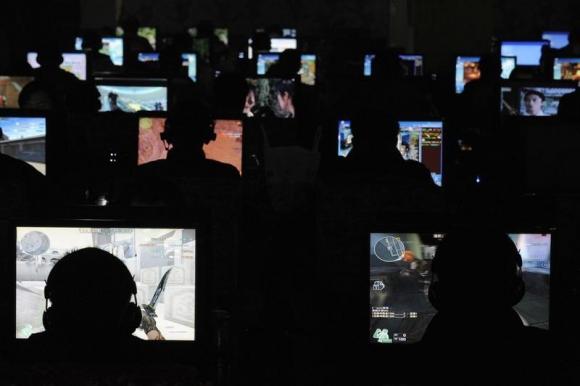At the South China Morning Post, Choi Chi-yuk reports that the Cyberspace Administration of China has issued new rules on the monitoring of internet news portals to ensure that online news reports remain consistent with centrally-approved content.
At a meeting of more than 60 representatives from central and regional news portals, major commercial websites and professional associations, as well as experts and scholars, the powerful Cyberspace Administration of China listed several new demands on mainland websites regarding management responsibility, Xinhua reported.
Editors-in-chief of the portals will be held responsible for the direction of content, and the creation, production and dissemination of news.
All such websites must ensure there were staff to check around the clock that the new requirements were being implemented, Xinhua said.
[…] The measures came within a month of the sacking of Wang Yongzhi, editor-in-chief of the online news department of Tencent, the Shenzhen-based internet giant, after one of its reports mistakenly ran a headline saying that Chinese President Xi Jinping had given “an important speech in a furious manner”, rather than “delivered an important speech”. The error came on the Communist Party’s 95th anniversary on July 1. The mistake was generally regarded as a typo rather than a deliberate act by someone. [Source]
Last month, the CAC released new rules prohibiting news websites from using social media as a source, and later announced fines for major internet news sites for publishing independent content. These new rules on internet news reporting come amid the Xi administration’s steady increase of control over the news media in China.
As reporters in China face more hurdles to independent reporting, the Committee to Protect Journalists reports that the relative media freedom enjoyed in Hong Kong is also shrinking as Beijing tightens its grip:
Observers lamented that the Hong Kong news outlets appear to be assuming the role of Chinese government mouthpieces. The interviews are the latest sign of the relentless decline of press freedom in the special administrative territory, which traditionally has enjoyed civil liberties not permitted on the mainland. In June, the local journalists’ group Hong Kong Journalists’ Association (HKJA) published its annual report detailing the numerous incidents impinging on Hong Kong’s press freedom over the previous year, with the case of the disappearances of five booksellers being the most egregious. HKJA in a statement said the year had been an “extremely difficult” time for Hong Kong and the media.
People who feel the effect are not only Hong Kongers, but also Chinese journalists and writers who have used the relative freedom of the Hong Kong press as an outlet to express views censored on the mainland, according to Chinese journalists and columnists who spoke with CPJ. […] [Source]
Read more about tightening media controls in China and Hong Kong, via CDT.








